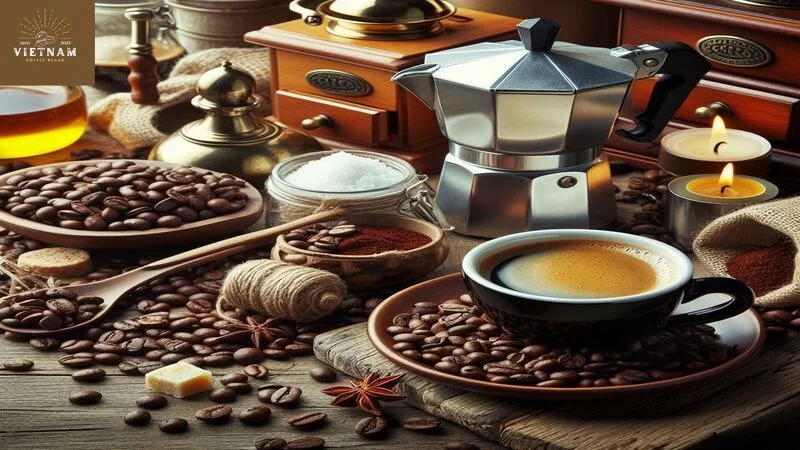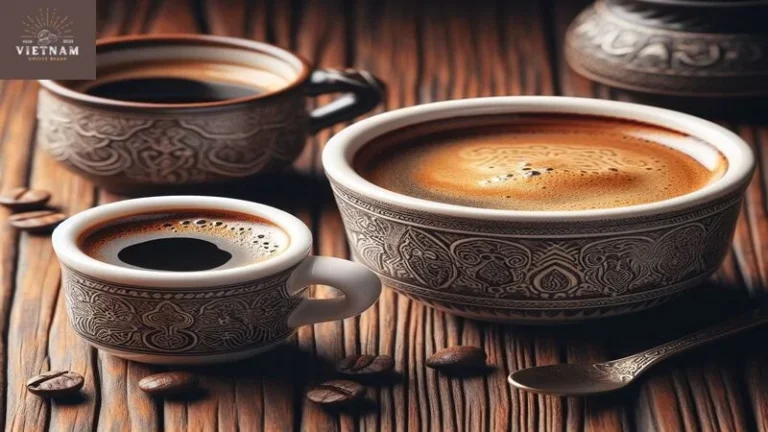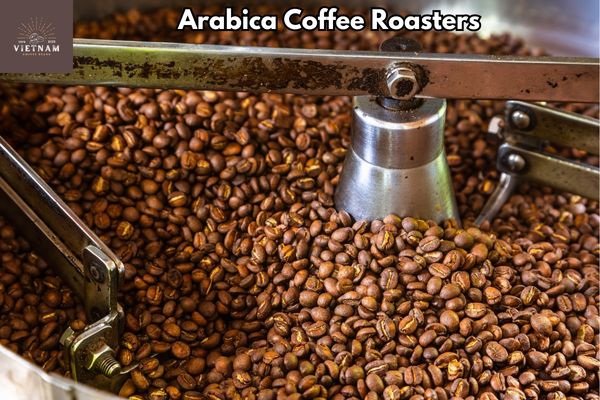Delve into the world of Arabica and Robusta, two distinct species of coffee, as Phi seeks to find the best beans from various countries. Discover how compared to Arabica, Robusta offers a different characteristic and profile, essential for choosing the right beans to produce a coffee that only can be achieved with knowledge and care.
In this article, Phi Nguyen embarks on a journey to explore the best Arabica coffee beans for espresso, where the richness of Lavazza Espresso Roast meets the sophistication of Italian espresso, a belief that Italians maintain is the best coffee.
Coffee Bros Espresso Blend (Medium Roast)
Price: $17.99
Coffee Bros is a roastery run by two brothers. I recently tried some of the best beans from their Signature Blend and have to say I was very impressed by the great espresso it produced. This blend is a crowd favorite and works wonderfully both as a straight espresso shot or as the base for a milk drink. The coffee was roasted to a medium level to bring out its natural sweetness. Because of this, it is suitable for both experienced home baristas and espresso newbies.
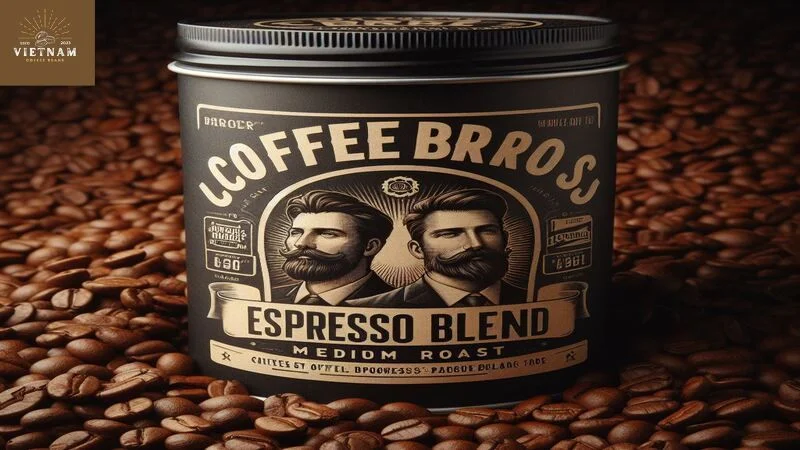
The blend is made from 100% Arabica beans origin and is not roasted too dark, giving it a cleaner finish compared to many other popular espresso blends that contain Robusta. On the packaging, the brand mentions favorite espresso flavors like strawberry, sugar cane, and vanilla. Of these, I think the strawberry notes stand out the most. The blend incorporates beans from Ethiopia and Colombia, and I suspect the berry flavors come from a high proportion of dry processed Sidamo or Yirgacheffe varieties.
I also appreciated that Coffee Bros roasted this freshly roasted coffee right after I placed my order, so the bag I received was still at peak freshness.
ILLY – THE BEST ITALIAN COFFEE FOR ESPRESSO
Illy’s Classico blend is a top pick for Italian-style espresso. When I recently tasted it, I detected flavor notes like cocoa, almond, raisin, and a hint of orange peel. This espresso blend is a classic, originating from the traditional Italian company Illy that was closely associated with espresso for many years. Although Illy is an industrial-scale company today, they put great effort into choosing the best coffee beans, looking for ripe cherries with few defects from reputable growers.
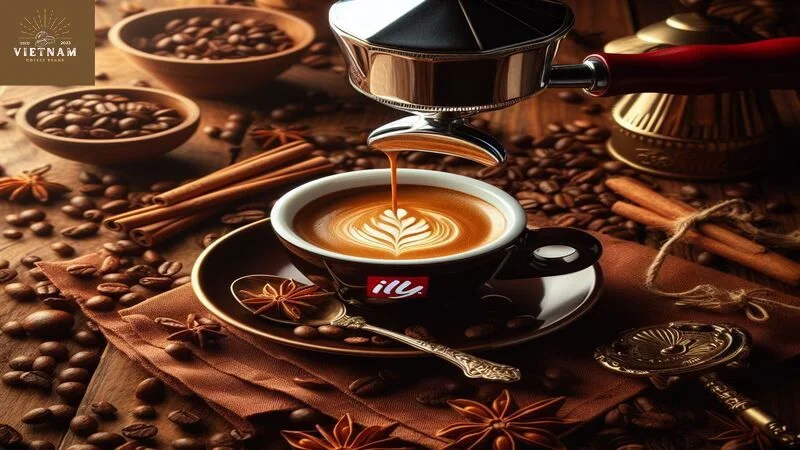
The Classico blend has a medium roast, lighter than the very dark roasts some expect from an Italian brand. It is quite versatile for various brew methods, though espresso drinkers who prefer milk drinks may want to opt for a slightly darker Illy roast. The Classico blend was used by World Barista Champions in 2001 and 2002.
While it likely won’t win competitions in today’s progressive coffee scene, it remains a solid, consistent choice for espresso. The whole beans will make the best espresso if you have a grinder properly dialed in. Pre-ground Classico is also available but is typically ground for moka pots, not fine enough for a real espresso machine. Try this classic Italian espresso blend and see my detailed comparison of Illy’s offerings for more recommendations.
Intelligentsia Black Cat Espresso Blend
Price: $14.99
This is another legendary company in the American specialty coffee scene. Intelligentsia trades directly and maintains relationships with all the farms it buys from. You pay a reasonable price and get incredible quality. This isn’t just marketing nonsense like some of the big multinationals.
This special coffee is dark, mysterious and round. It has flavors of chocolate, caramel and molasses. This coffee also has low acidity, making it suitable for milk-based drinks or for those with sensitive stomachs.
Lavazza Espresso Italiano
Price is around $14.23 for a 2.2-pound pack
This is a medium roast coffee from Lavazza. It is a subtle, balanced coffee with notes of hazelnut and chocolate.
This is truly an all-round coffee. You can use it in milk drinks or enjoy it straight up. When I tested Lavazza’s blends a few years ago, it worked well.
I’m not sure why Lavazza calls it “Espresso Italiano” because that might confuse some people who think Italian espresso means super dark and strong – that’s NOT dark. If that’s what you’re looking for, go for the next coffee on this list: Qualita Rossa.
Espresso Italiano is a cheaper alternative to Illy’s famous medium roast and, in my opinion, on par with quality. It’s usually cheaper. Overall, a solid all-rounder for the price-conscious espresso connoisseur.

Lavazza: Best Coffee Beans for Fully Automatic Espresso Machines
Price $30.99
This is another classic Italian espresso blend. Lavazza is, so to speak, the evil twin of Illy and is just as widespread in the motherland of espresso.
The Rossa version is one of the company’s most famous blends. There’s a lot of Robusta in here, so expect a strong coffee that doesn’t offer as much acidity or subtle flavors. This is more about the crema, the texture and the mouthfeel.
- This is a very traditional espresso!
- However, many people still like it. So if you’re reading this and you’re not a hardcore espresso snob who’s deep into extraction theory, then you should give it a try.
- When I tested my large Lavazza coffee, one of my older family members actually called it his favorite because it didn’t have the same acidity as the 100% Arabica coffees.
- Overall, this is a strong espresso shot with no acidity and subtle notes of cocoa nibs.
- What’s interesting is that it’s still a medium-dark roast. It’s not as oily as, for example, Starbucks.
- This would be an excellent choice if you are looking for beans for the fully automatic espresso machine.
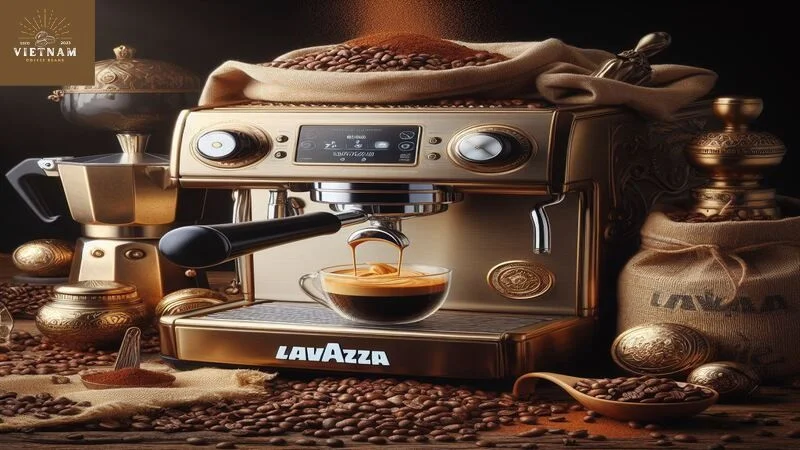
Swap Your Coffee Subscription for Espresso
Price $27.50
I’m a big fan of coffee clubs and Trade Coffee is one of the most popular options out there.
Most coffee subscriptions can be difficult to recommend because they focus on a specific roasting style.
Trade Coffee is unique because it works with a number of different top-notch roasters.
You’ll receive specific coffee recommendations based on your brewing method and coffee preferences.
So if you like it dark and intense, you can get this. And if you like it fruity and light, you also have this option.
So if you want to get freshly roasted, excellent espresso beans tailored to your needs, then check out this club.
There is even a generous discount when you register.
Partners Elevate
Price: $17.00
Partners Elevate espresso is made from a blend of arabica beans sourced from Brazil, Colombia, and Sumatra. These beans are carefully roasted to produce a balanced espresso with notes of chocolate and caramel. The beans are roasted fresh weekly to ensure optimal flavor. Partners Elevate is a great option for espresso lovers looking for a classic espresso profile.
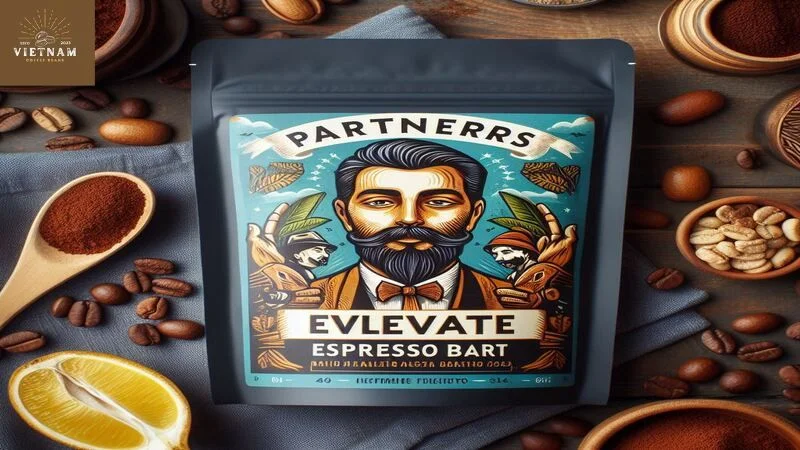
This medium-dark roast is a crowd-pleaser if ever there was one. It has notes of red apple, caramel and pecan pie that don’t mask its pleasant natural bitterness. It’s complex enough for true connoisseurs without alienating casual drinkers.
49th Parallel Coffee Roasters Epic Espresso – BEST LIGHT ROAST
Price: $18.99
49th Parallel Epic Espresso is a single origin espresso made with beans from Finca El Puente in Colombia. The beans are roasted medium-dark to bring out notes of chocolate and hazelnut. As a single origin espresso, Epic Espresso showcases the unique characteristic and flavor profile of Colombian beans. 49th Parallel roasts the beans weekly to maximize freshness and taste. Epic Espresso is a great choice for those who enjoy the flavor complexity of single origin espressos.
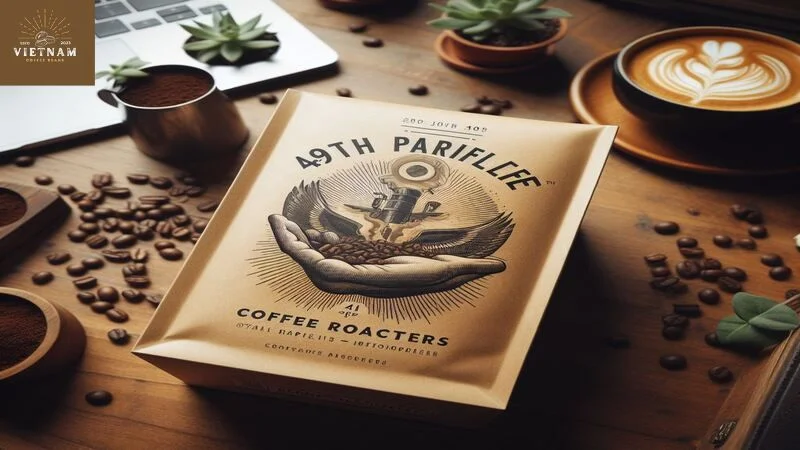
If you’re ready to take the plunge into light roast espresso, this floral, sweet blend from British Columbia’s 49th Parallel is a good place to start. While the trend for dark roasts is toward chocolate and nutty flavors, this single-origin Peruvian coffee is floral and fruity with a natural sweetness that isn’t rooted in these heavier flavors.
Blue Bottle Hayes Valley Espresso – BEST FOR MILK DRINKS
Price: $13.00
Blue Bottle Hayes Valley Espresso features a blend of beans from Central and South America. The beans are roasted medium to produce a balanced espresso with notes of chocolate, caramel, and hazelnut. Blue Bottle has an artisanal approach to coffee roasting and aims to maximize the unique flavors of each bean variety used in their espresso blend. The beans are roasted in small batches weekly ensuring optimal freshness. Hayes Valley espresso is a great everyday espresso.
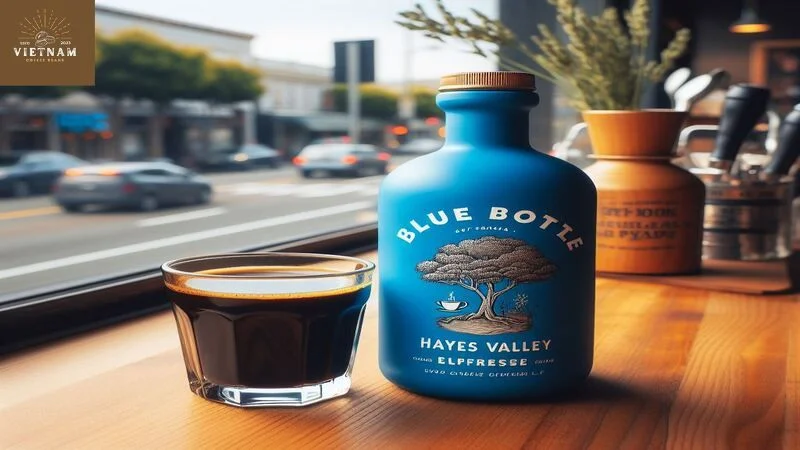
This is the coffee that Blue Bottle uses as the base for its espresso drinks. Its profile combines dark chocolate with what the brand describes as “a hint of orange” to balance it all out. A latte, cappuccino, or other milk-based espresso drink from Hayes Valley is a balanced affair, with the espresso cutting through the creamy milk without dominating it.
Counter Culture Buliza Dark Roast – BEST FOR AMERICANS
Price: $23.00
Counter Culture Buliza espresso features a blend of beans sourced from Ethiopia and Brazil. The beans are roasted dark to produce an espresso with a bold, intense flavor and notes of chocolate and caramel. As a dark roast espresso, Buliza offers a thicker, syrupy mouthfeel. Counter Culture carefully calibrates their roasts to bring out the best characteristics of each bean variety used in the blend. Buliza is a great option for espresso drinkers who enjoy a thicker, bolder espresso.
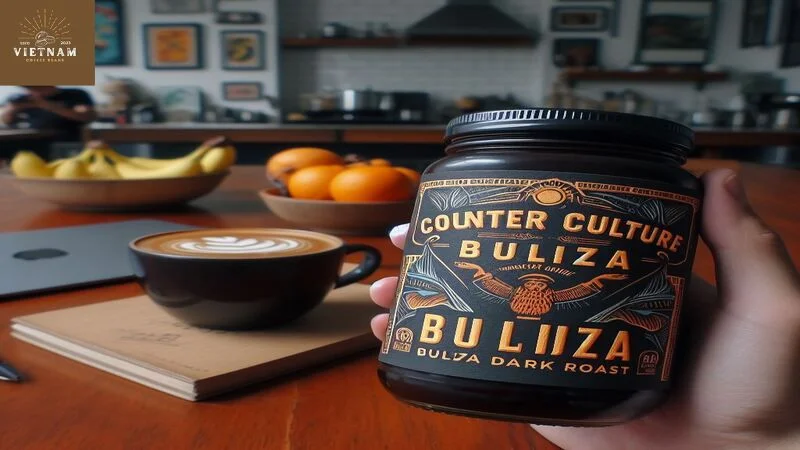
An Americano is essentially just a diluted espresso, so the coffee you use to make it should have a strong and distinct flavor that will survive the dilution. Buliza, a single-origin dark roast from Rwanda, hits the spot, featuring classic dark chocolate as well as rarer notes of molasses and figs.
Lavazza Espresso Italiano whole bean – BEST CLASSIC ITALIAN
Price: $17.99 $14.49
Lavazza Espresso Italiano features a blend of Brazilian arabica beans and robusta beans from Asia. The blend uses 20% robusta beans to provide a rich crema and higher caffeine content compared to a 100% arabica espresso. The beans are roasted medium dark to produce a traditional Italian espresso with notes of chocolate and hazelnut and a lingering aftertaste. As one of Italy’s leading coffee brands, Lavazza has perfected the art of blending for espresso. Espresso Italiano is a classic go-to for making espresso at home.
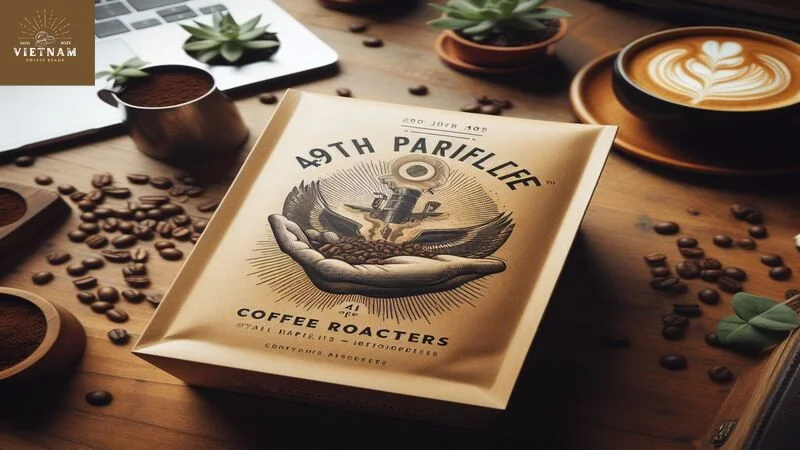
If you’re looking for the black, oily coffee that Saxon described as classic Italian, this one—a 100% Arabica blend from Central and South America—is it. Its distinct floral tones complement its richness. On the whole you can enjoy it in a piazza, but it will also do just fine in the kitchen.
Stumptown Trapper Creek Decaf – BEST CAFFEINE FREE
Price: $17.00
Stumptown Trapper Creek Decaf features 100% arabica beans sourced from Latin America. The beans are roasted medium to produce a smooth, well-balanced decaf espresso.
Stumptown employs a Swiss Water Process to decaffeinate the beans gently preserving flavor. The espresso has tasting notes of milk chocolate, toasted almond, and honey.
As a specialty decaf espresso, Trapper Creek allows one to enjoy the ritual of espresso without the caffeine. It’s perfect for the afternoon or evening espresso lover.

Stumptown took South American coffee beans with notes of cocoa, graham and dried fruits and subjected them to the Swiss water process, the gold standard of chemical-free decaffeination. The result is a mixture that retains its complex flavor but does not cause nervousness even when consumed late.
Conclusion
Experience the unique flavors that set apart Arabic coffee and Café de Loja, a testament to the art of coffee, and see how, through the lens of expert coffee roasters and the precision of the espresso machine, the journey to the best Arabica beans unfolds. Whether you’re using a coffee machine at home or seeking the expertise of JL Hufford, Vietnamcoffeebeans demonstrates that the path to the perfect cup starts with the best Arabica beans.

